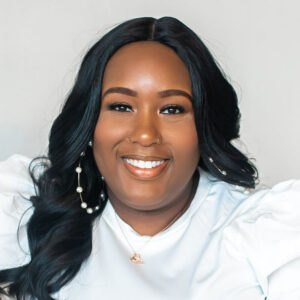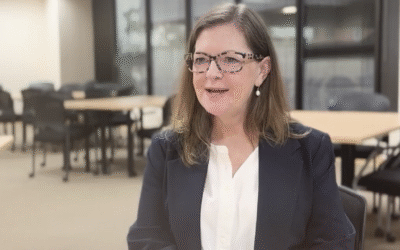The Moment It All Changed
I remember seeing the positive sign on the pregnancy test 12 years ago, and for the first time, I was speechless. As a 24-year-old, only one year into my first real corporate role, a wave of emotions rushed through me—excitement, fear, disbelief—and I immediately began to question everything I thought I knew about myself. My journey to motherhood had begun, and so had the anxiety.
Even before I held my daughter in my arms, the fear settled in: “Am I ready?” “Will I change?” “What if I fail her?” “What if I can’t meet her needs?”
I didn’t know who to talk to or if I was even allowed to say those fears out loud. So, I didn’t. I buried them and carried the weight like many mothers do.
When they placed my daughter in my arms, the emotions intensified. I thought everything would fall into place—but when as my loved ones left, one by one to travel 3.5 hours away from me and my daughter, it only got worse. Every time someone asked, “How are you?” I smiled and said, “I’m fine.”
But I wasn’t.
At my postpartum visit, a nurse began reading from a checklist of symptoms. I sat in silence, mentally checking every box. That was the moment I knew: I was struggling with postpartum depression. But I still said no out loud.
The Silent Struggle in South Carolina
Maternal mental health issues—like postpartum depression, anxiety, and PTSD—affect 1 in 5 women in the U.S. But in South Carolina, the numbers are even more alarming:
- According to America’s Health Rankings, 14.1% of women with a recent live birth report depressive symptoms
- The pregnancy-related mortality rate is 38.6 per 100,000 births—above the national average as reported by the March of Dimes in 2024.
- The South Carolina Maternal Morbidity and Mortality Review Committee reported that mental health conditions were the second leading cause of maternal deaths in South Carolina between 2018 and 2021.
These statistics don’t tell the whole story—but they highlight the urgency of the issue.
Signs of Poor Maternal Mental Health
Many moms suffer in silence—either because they don’t recognize the signs or because they fear what could happen if they speak up. Here are some symptoms to look for:
- Persistent sadness, hopelessness or frequent crying
- Feeling overwhelmed or unable to bond with your baby
- Intense worry, panic attacks or racing thoughts
- Sleeping or eating too much—or not at all
- Thoughts of harming yourself or your baby
- Feeling disconnected, numb or like you’re not yourself
These symptoms can show up weeks, months, or even a year after giving birth. They can range from mild to severe. Experiencing them doesn’t mean you’re a bad mom—it means you’re human, and you need support.
How to Get Help
For me, the turning point wasn’t just being honest with myself—it was being honest with others. After hitting a low point and experiencing suicidal thoughts, I reached out for help.
I found a therapist and began working through my postpartum depression. Therapy gave me an opportunity to intentionally check in with myself and stand face to face with the struggles I was having.
I was a first-time mom without help, living hours away from family and navigating redesigning life as I knew it. My therapist worked with me to help me label my emotions, identify the things that were triggering me and grasp a true understanding of self-care beyond getting my hair and nails done. It also helped me reclaim my identity—not just as a mom but as a woman.

Ciera Young recently gave some encouragement to other parents over on SC Parents’ Instagram. Tune in!
If you or someone you know is struggling, here are ways to get support:
1. Talk to Your Doctor
- OB-GYNs, pediatricians and primary care providers can screen for postpartum depression
- Ask for a referral to a maternal mental health specialist
- Use PsychologyToday.com to find a therapist near you
2. Local + National Resources
- Postpartum Support International – SC Chapter: psichapters.com/sc
- Call or text 988 for the Suicide & Crisis Lifeline if you’re in immediate need
3. Know You’re Not Alone
- Join a virtual support group or mom community
- Talk to another mom—chances are, she’s felt some of the same things
A Word for the Village
If you’re a new mom and you feel “off,” please know: It’s okay to not be okay. Your needs matter just as much as your baby’s. Prioritize your healing—your peace is part of your parenting.
And if you’re a loved one or friend, don’t just ask, “How’s the baby?” Ask, “How are you doing, really?” Hold space. Be gentle. Let her be honest.
Now that I have two beautiful daughters and work as a Licensed Professional Counselor, prioritizing my mental health is non-negotiable. Gaining the skills I need to navigate postpartum depression was the best thing that I could have done—for my daughters, for those around me, and most importantly for myself.
I learned that honesty is the first step towards healing and breaking down the barriers and stigmas associated with mental health, because maternal mental health matters—and in South Carolina, it’s time we started treating it like the priority it truly is.
Ciera Young is a Licensed Professional Counselor who is passionate about normalizing mental health and creating conversations that go Beyond the White Couch. You can connect with her on Instagram at @beyondthewhitecouch.





